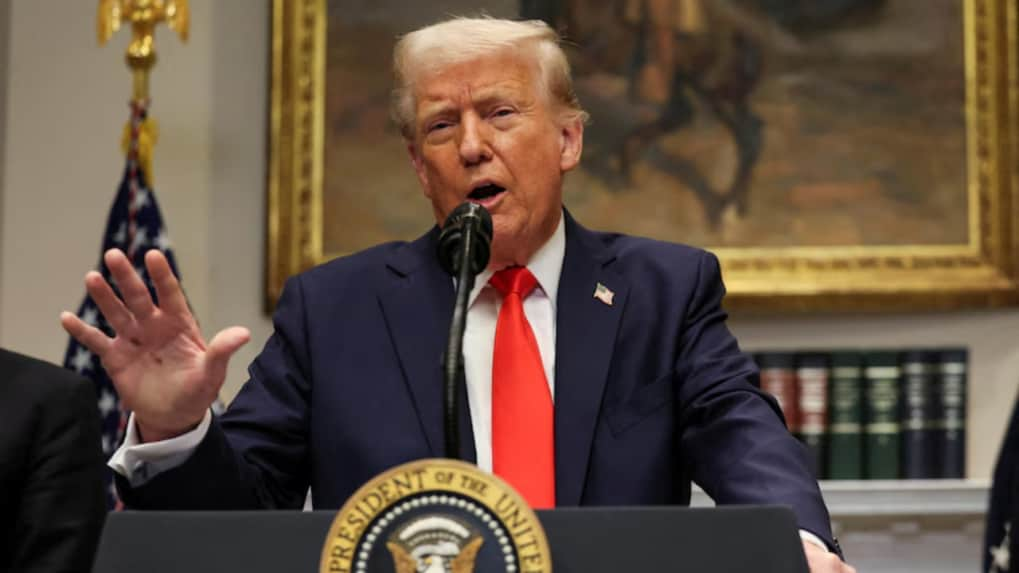Trump posts AI video depicting Obama’s arrest in Oval Office, draws criticism
The video concludes with an image of Obama in a prison cell, dressed in an orange jumpsuit.
ADVERTISEMENT
US President Donald Trump has triggered widespread criticism after posting an AI-generated video depicting former President Barack Obama being arrested by FBI agents in the Oval Office. The clip, shared on Trump’s platform Truth Social, comes amid escalating political rhetoric and follows weeks of unfounded accusations from Trump, who recently claimed Obama was involved in "high-level election fraud".
The video begins with a fabricated clip of Obama stating, “especially the President is above the law”, followed by a montage of real-life American politicians repeating the phrase “no one is above the law.” The footage then cuts to an AI-generated scene of Obama being handcuffed by two FBI agents in the very room where he once served as President. Trump is shown seated nearby, smiling as the fictional arrest unfolds.
The video concludes with an image of Obama in a prison cell, dressed in an orange jumpsuit.
Crucially, the video contains no disclaimer stating that it is fictional—a decision that has been widely condemned. Critics have labelled the move “deeply irresponsible” given the potential for AI-generated content to spread misinformation and incite polarisation, especially during an election year.
The timing of the post adds further controversy. It comes just days after US Director of National Intelligence, Tulsi Gabbard, alleged there is “overwhelming” evidence that officials from the Obama administration fabricated the Trump-Russia collusion narrative following the 2016 election. Gabbard claimed such actions were part of a calculated effort to “subvert” Trump’s presidency and called for legal proceedings against former Obama-era officials.
“Americans will finally learn the truth about how, in 2016, intelligence was politicised and weaponised by the most powerful people in the Obama administration… to lay the groundwork for what was essentially a years-long coup,” Gabbard wrote on X (formerly Twitter).
However, her assertions contradict findings from the Office of the Director of National Intelligence (ODNI). A 114-page declassified document released by ODNI earlier this month states that prior to the November 2016 election, the US Intelligence Community consistently assessed that Russia was “probably not trying to influence the election by using cyber means”. A draft dated 8 December 2016 even noted that Russia "did not impact recent US election results" through malicious cyber activities.
Neither Trump nor his representatives have responded to the criticism or issued clarification regarding the authenticity of the video.
This latest incident raises fresh concerns about the unregulated use of AI-generated media in politics, with experts warning of the potential dangers of deepfakes blurring the lines between satire and deliberate misinformation.
Read More: “Scary”: Creators like Ankush Bahuguna say AI will standardize content and slash payouts


